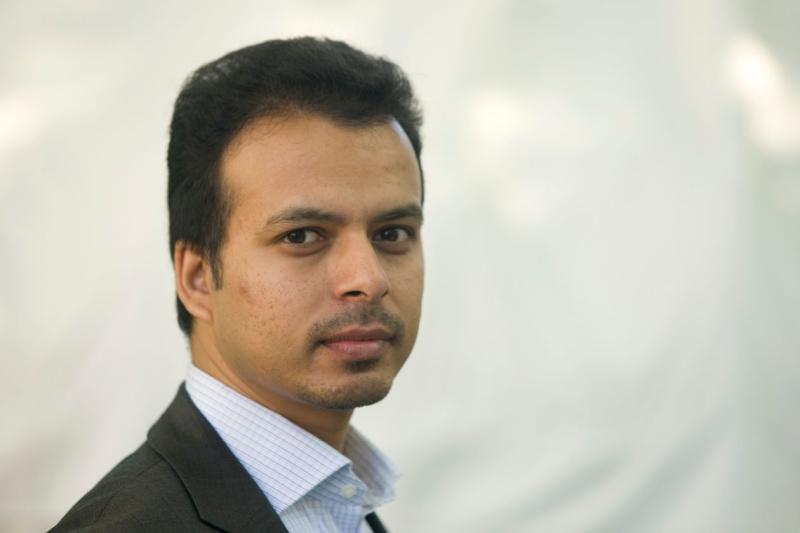'Among the Mosques' Review: From Islamist to British Patriot
By: Michael Doran (WSJ)



The future of relations between Muslims and non-Muslims in the United Kingdom may be a troubled one. Ed Husain sounds the alarm in "Among the Mosques: A Journey Across Muslim Britain." The book chronicles his visits to 10 cities. Mr. Husain, a British writer and political adviser, takes us into local mosques for Friday prayers and relates his encounters, planned and unplanned, with local personalities in Muslim communities. Some of the communities he visits exhibit the very best British traditions of tolerance and pluralism, but most do not.
The Markazi Mosque in the northern mill town of Dewsbury, Mr. Husain writes, "is the European central office of the largest Muslim organisation in the world, the Tableeghi Jamaat." The original goal of the organization, founded in 1927 in India, was to oppose the British Raj and "to stop the dilution of Muslim identity in the cosmopolitan cities of British India." Its members are great proselytizers. Knocking on doors across the Muslim world, they are, as Mr. Husain puts it, "essentially the (male-only) Muslim version of Jehovah's Witnesses."
The annual Tableeghi convention in Bangladesh attracts five million Muslim men from around the world. Women are not welcome. The Tableeghis are particularly prominent in the U.K., where, by Mr. Husain's count, the Deobandi movement, of which the Tableeghi Jamaat is the missionary arm, controls "more than half of Britain's mosques."
Like the Muslim Brotherhood, which sprang up in Egypt around the same time, the Tableeghi Jamaat sees modern Western culture as an assault on Islam. To counterattack, it promotes an understanding of Islam that organizes every aspect of life, including politics. Mr. Husain puts it this way: "While political Islamists in the Muslim Brotherhood target the state and seek to change its laws through elections and parliaments, as in Egypt and Syria, and their jihadi cousins in al-Qaeda and ISIS use violence in seeking to restore a caliphate in several Muslim countries, the Tableeghi Jamaat believe in bottom-up change, and work for their caliphate from the masses upwards."
This bottom-up strategy leads to the construction of a parallel society. Banning music and alcohol helps to wall Muslims off from the prevailing British culture, as does the creation of sharia courts that provide members an alternative to the state on matters of personal status, such as marriage and divorce. When Mr. Husain asks a cleric in Dewsbury why there are no women in the mosque, the cleric directs him to a book, "Guidance for a Muslim Wife." A sample line from that work: "When a woman leaves her home without her husband's consent, then all the angels of the skies and the entire universe curse her for this act until she returns home."
Mr. Husain worries about the effect of such teachings, especially on depressed northern mill towns. In the city of Blackburn he encounters two locals, non-Muslim white men, who explain that the downtown quarter, Whalley Range, is a no-go zone for whites at night. “We call this the Khyber Pass,” one of them says, pointing to a bridge leading into the quarter. Americans, who have a long familiarity with neighborhoods divided by ethnicity and with religious groups that keep to themselves, might not find anything sinister in this. But Muslims, Mr. Husain stresses, are the fastest growing minority in Britain. Between 2001 and 2016 the entire population of England grew by 10.9%, while the Muslim population grew by 107.3%—to more than three million in total. More enclaves like Whalley Range are almost certain to arise.
And they will wield ever more political power. Jeremy Corbyn, the former leader of the Labour Party, frequently applauded Hamas, extended a hand of friendship to radical Islamists, and feigned blindness about anti-Semitism in his party. His calculation was easy to discern. Some 30 seats in Parliament represent constituencies influenced by intolerant mosques. Politicians like Mr. Corbyn purport to be committed to multiculturalism and minority rights but pander to bigots and oppressors—giving unscrupulous leaders in the Muslim community an excuse to depict any criticism as rank prejudice.
The laudable intention of shielding minorities from intolerant attacks has had the paradoxical effect of empowering intolerant Islamists whose ultimate aim is to eliminate the core values of the wider culture. “Multiculturalism has now enabled monoculturalism,” Mr. Husain writes.
A practicing Muslim, Mr. Husain addresses readers not as a spokesman for his religious community but as a British patriot. He first came to prominence in 2007 with the publication of “The Islamist,” a memoir of his youthful attraction to Islamism and eventual rejection of it. The Ed Husain of that book was working within the parameters of multiculturalism as interpreted by Tony Blair’s Labour Party. The Ed Husain of “Among the Mosques” has dispensed with the doctrine altogether. The antidote to the Islamist threat, as he now understands it, is a vigorous defense of traditional British values: the rule of law, individual liberty, and gender and racial equality. “If we lose any of this inheritance,” he writes, “we lose ourselves.”
In a surprising twist, “Among the Mosques” doesn’t identify the activities of the Islamists as the nub of the problem. The most dangerous threat of all emanates not from groups like the Tableeghi Jamaat but from the general loss of belief in Britain’s own great traditions. If British patriots, Muslim and non-Muslim alike, would only defend their traditions with vigor and self-confidence, the magnitude of the problem would shrink. “For as long as we fly the flag with confidence in our national character,” Mr. Husain writes, “our Muslim and other fellow citizens will join the British mainstream with pride and a sense of belonging.” There’s a lesson in this argument for Americans too.



